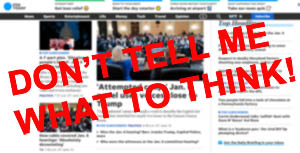


Newspaper Giant’s New Editorial Approach Creates Crisis Communications Challenges
By Howard Fencl, Hennes Communications – Surprise! Fewer and fewer newspaper readers pore over editorial pages. So many fewer, that publishing giant Gannett recently announced a sweeping change in its approach to editorials, op-eds and political endorsements. Gannett says its readers don’t want to be told what to think – that editorial content is frequently the reason readers cancel subscriptions – and that opinion journalism stokes the fires of distrust in the media.
Its recommendations – the company stresses they are not mandates for its newspapers – include cutting back on “unsigned” editorials, limiting political endorsements to local races and eliminating syndicated national columns and editorial cartoons. Gannett has also urged its newspapers to stop publishing letters to the editor online, restricting them to print editions, except in rare cases. It wouldn’t be surprising to see other newspaper ownership groups follow suit.
Gannett’s audience reach is massive. It owns USA Today and 250 daily papers across the country. Practically speaking, Gannett’s philosophical shift could have an impact on your communications outreach on crises or ugly issues your company or organization faces when you need the help of the media’s megaphone to reach a massive audience. A few considerations when planning your media strategy:
- Offer only hyperlocal letters to the editor or op-ed pieces. Gannett suggests its newspapers focus on local issues, arguing that syndicated national opinion content is easy to find on the web or social media. Save your breath pitching your CEO’s stance on hot-button national and international issues. However, there’s a real opportunity here for companies taking a serious stand on issues with local impact.
- Avoid divisive content. Part of the audience turn-off, according to Gannett, is all the shouting and finger-pointing that has become rampant in traditional and online media.” Defamatory, harmful, degrading and dehumanizing language has no place in our pages,” says Gannett. Be sure the tone of your submission will be construed as constructive, offering solutions to issues rather than playing the blame game or exacerbating differences of opinion.
- Fact check. You can be sure the newspaper you’re pitching will. If your piece is inaccurate or promulgates misinformation, you can forget about getting it published.
- Plan your editorial board pitch carefully. Gannett’s guidelines do not mean its newspapers won’t write ANY editorials, they’ll just write fewer and limit the platforms to which they are published. Think your editorial pitch all the way through. Is the issue hyperlocal? Why? What solutions is your organization offering to mitigate negative fallout from the issue? If you can’t answer these questions, consider another communication tactic.
- Plan around the media filter. In a changing media landscape, it’s more important than ever for your company to adopt a newsroom mindset to get around the media filter and communicate with your critical audiences. We have always advised our clients to look for ways to communicate with key audiences that don’t depend on news media. It’s particularly important to build your organization’s social media presence and volume of followers so that in a pinch, you can quickly publish important information without relying on media coverage. A newsletter database can also be leveraged. The same goes for your customer, prospect and vendor databases. A targeted email campaign can have far more personal impact with the people you care about most than an op-ed or letter to the editor they may never see or read.
- Spend $905 on US-1. Write 400 words or fewer and have PR Newswire shoot your no-frills press release across its national newswire network for less than a grand. Your release will be delivered to thousands of media across the nations, many of which will drop your release verbatim on their web sites. Four hundred words seem like a haiku to you? Each additional 100 words will set you back $285. That’s a lot of media reach and visibility for the investment.